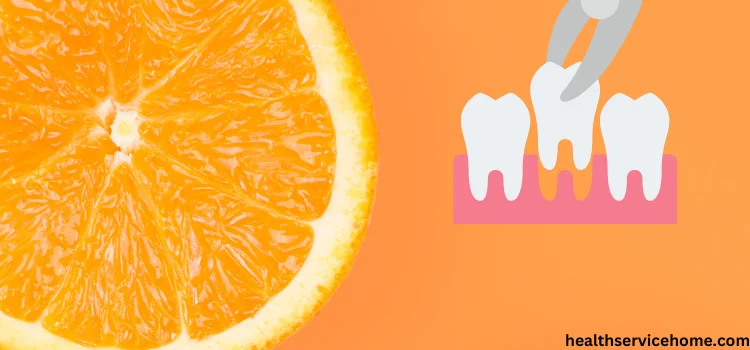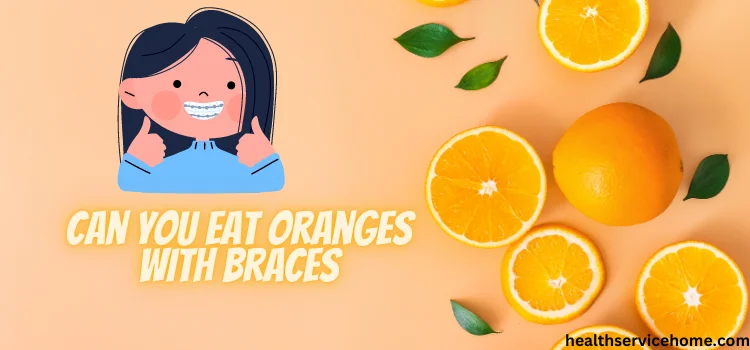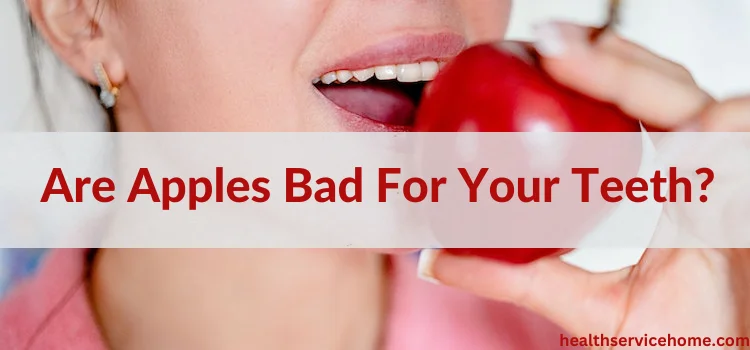Yes, You can, But with caution. Oranges’ natural acidity can impact tooth enamel, especially when you have braces.
Opt for mealtime oranges to boost saliva production for acid neutralization. Stay hydrated to maintain a balanced pH level.
Are Oranges Too Acidic For Braces?
Oranges and acidity often go hand in hand. The zesty flavor that makes oranges so delicious stems from their natural acidity.
But does this acidity spell trouble for your braces? The good news is that enjoying oranges in moderation is generally safe for most people with braces.
The acid content in oranges can weaken tooth enamel over time. However, You can minimize the potential risks by practicing good oral hygiene habits such as regular brushing, flossing, and rinsing.
Cutting oranges into smaller, bite-sized pieces can also help reduce the direct contact of acidic juices with your teeth and braces.
Is Orange Safe To Eat With Braces?
Oranges are renowned for their refreshing tanginess, which comes from their natural acidity.
The concern arises from acidic foods weakening tooth enamel over time, potentially leading to cavities and other dental issues.
Maintaining strong enamel is crucial for braces wearers, as braces create nooks and crannies where food particles and acids can get trapped.
Moderation is Key
The good news is that you don’t have to eliminate oranges from your diet while wearing braces. The key is moderation.
Enjoying oranges in moderation helps minimize the exposure of your teeth and braces to acidic juices, reducing the risk of enamel erosion.
Also, consider cutting oranges into smaller, manageable pieces to lessen direct contact with your teeth.
Oral Hygiene
Your Best Friend: Maintaining impeccable oral hygiene is vital for everyone, but even more so for individuals with braces.
Brushing, flossing, and rinsing after eating oranges can help remove any lingering acidic residues and food particles that might have lodged in your braces.
Remember, a clean mouth is a healthy mouth, and a healthy mouth ensures successful orthodontic treatment.
Timing Matters
Timing plays a role in minimizing the impact of acidic foods on your teeth. Try to enjoy oranges during meal times rather than as a standalone snack.
When you consume acidic foods with other foods, your mouth produces more saliva, which helps neutralize acids and wash away particles.
Stay Hydrated
Drinking water is essential for overall health but also aids in maintaining oral health. After indulging in oranges, take a sip of water to help rinse away the acidic residues and maintain a balanced pH level in your mouth.
Avoid The Peel
While the juicy flesh of oranges is the main attraction, it’s wise to avoid biting into the peel. Biting into the tough peel can damage your braces, brackets, or wires. Stick to the edible parts of the fruit to prevent any unwanted mishaps.
Other Options for Getting Vitamin C While Wearing Braces
While oranges are a popular source of vitamin C, they may not be the best option for those wearing braces. The acidic nature of citrus fruits can potentially cause damage to the brackets and wires, leading to discomfort and even prolonging treatment time. But fear not! There are plenty of other ways to ensure you’re getting your daily dose of vitamin C while keeping your orthodontic appliances intact.
One alternative is strawberries, which are not only delicious but also rich in vitamin C. These juicy berries can be enjoyed as a snack or added to smoothies and salads. Another great option is kiwi fruit, known for its high vitamin C content and refreshing taste.
If you’re looking for something more tropical, consider adding pineapple or mangoes to your diet. Both fruits offer a sweet burst of flavor along with their nutritious benefits.
Don’t forget about bell peppers! Whether red, green, or yellow, these colorful vegetables pack a punch when it comes to vitamin C content.
With so many alternatives available, there’s no need to worry about missing out on this vital nutrient while wearing braces. Experiment with different fruits and vegetables until you find what works best for you – both in terms of taste and oral health!
Can I Eat Oranges After Tooth Extraction?

After a tooth extraction, it’s best to steer clear of oranges initially. The acidity of oranges and the chewing motion can irritate the sensitive extraction site, potentially leading to discomfort and delayed healing.
Waiting for your dentist’s approval before reintroducing oranges into your diet is crucial. As the healing progresses, start with small, soft pieces of oranges to gauge your comfort level.
Remember, your dentist’s guidance is essential, as they can provide personalized advice based on your healing process and ensure a smooth recovery without compromising your oral health.
The Effect of Citrus Fruits on Braces
Citrus fruits, such as oranges, are known for their high vitamin C content and refreshing taste. However, when it comes to wearing braces, you might be wondering about the effect of these acidic fruits on your orthodontic treatment.
One potential concern with citrus fruits is their acidity. The acid in oranges can erode the enamel of your teeth over time, leading to tooth decay and sensitivity. This is especially true if you consume large amounts of citrus fruits or drink acidic juices frequently.
Another issue to consider is that the sticky nature of some citrus fruits can get stuck in between brackets and wires, making it difficult to clean effectively. This can increase the risk of plaque buildup and cavities.
While it’s not necessary to completely avoid citrus fruits while wearing braces, moderation is key. It’s important to brush your teeth thoroughly after consuming any acidic foods or drinks to remove any residue and protect your teeth from damage.
In addition to brushing regularly, using a fluoride mouthwash can help strengthen your tooth enamel against acid attacks. Drinking water after eating oranges can also help rinse away any remaining acidity.
If you’re craving the tangy goodness of oranges but want a safer option for your braces, consider opting for peeled slices instead of biting directly into a whole orange. This reduces the risk of damaging brackets or wires.
While enjoying citrus fruits like oranges in moderation can still be part of a balanced diet while wearing braces; it’s crucial to maintain proper oral hygiene practices and take precautionary measures like brushing thoroughly after consumption.
Can I Eat Oranges After Wisdom Teeth Removal?
It’s recommended to avoid eating oranges immediately after wisdom teeth removal. The high acidity of oranges and the chewing motion could irritate the surgical sites and hinder the healing process.
It’s best to wait until your dentist or oral surgeon gives you the green light to reintroduce oranges into your diet.
As your mouth heals, you can gradually introduce soft and easily chewable foods, including oranges, under their guidance.
Remember, following your dentist’s instructions is crucial for a smooth recovery and ensuring you don’t compromise your healing process or oral health.
Tips for Eating Oranges with Braces
Eating oranges can be a challenge when you have braces, but with a few simple tips, you can still enjoy this delicious and nutritious fruit without causing any damage to your orthodontic appliances.
- Cut it into small pieces: Instead of biting directly into the orange, try cutting it into small bite-sized pieces.
- Peel carefully: When peeling the orange, take your time and be gentle. Avoid using your teeth or excessive force to remove the skin as this could lead to broken brackets or wires.
- Remove seeds: Before eating the orange slices, make sure to remove any seeds that may be present. Accidentally biting down on a seed can cause discomfort and potentially damage your braces.
- Chew slowly and cautiously: Take small bites of the orange slices and chew slowly and cautiously. Be mindful of how much pressure you are applying with your teeth to avoid putting unnecessary strain on your braces.
- Rinse thoroughly afterward: After enjoying your oranges, rinse out your mouth thoroughly with water or an orthodontic-friendly mouthwash to remove any residual citrus acids that may linger on your teeth or braces.
Conclusion
The high acidity of oranges might raise concerns, but enjoying them in moderation and with caution can be manageable.
By adhering to good oral hygiene practices, cutting oranges into smaller pieces, and considering the timing of consumption, you can minimize potential risks to your braces and dental health.
Remember, your orthodontist’s personalized guidance is invaluable in navigating this dietary choice.
So go ahead, savor the tangy sweetness of oranges, armed with the knowledge and care to keep your braces journey on track towards a healthier, happier smile.
Frequently Asked Questions.
Can oranges damage my braces?
Oranges may not damage your braces, but their acidity can weaken tooth enamel. Practicing good oral hygiene and consuming oranges in moderation can help prevent issues.
How soon can I eat oranges after tooth extraction?
It’s best to wait a few days after a tooth extraction before consuming oranges. The high acid content might irritate the extraction site during the initial healing period.
Can I eat oranges after wisdom teeth removal?
Following wisdom teeth removal, avoid oranges until your mouth has adequately healed. Once your dentist confirms progress, you can reintroduce oranges with caution.
Are there alternative fruits I can eat with braces?
You can enjoy plenty of soft, non-acidic fruits with braces, such as bananas, applesauce, and ripe pears.
How can I protect my teeth while eating oranges?
Cut oranges into smaller, manageable pieces and rinse your mouth with water after eating. This helps minimize direct contact between acidic juices and your teeth.
What are some other options for getting vitamin C while wearing braces?
If you’re concerned about the effects of citrus fruits on your braces, there are plenty of other ways to get your daily dose of vitamin C. You can try incorporating foods like strawberries, kiwis, mangoes, or even bell peppers into your diet for a healthy boost of this essential nutrient.
Are there any tips for eating oranges with braces?
Here are a few tips to help you enjoy oranges while minimizing the risk of damaging your braces:
Cut the orange into small pieces or slices before eating.
Avoid biting directly into the fruit as this could put unnecessary pressure on your brackets and wires.
Rinse out your mouth thoroughly with water after consuming acidic foods.
Brush and floss carefully after every meal or snack.
Can you eat oranges with braces?
Yes, you can eat oranges with braces! However, there are a few things to keep in mind to ensure that you do so safely and without causing any damage to your braces.
Should I consult my orthodontist before consuming citrus fruits?
It’s always a good idea to consult with your orthodontist about specific dietary concerns related to wearing braces. They will be able to provide personalized advice based on the condition of your teeth and overall oral health.
A Blogger, Author and Researcher! Gohar Aalam is recognized as a full-time blogger for Health and Tech Niches. I’m a Fountainhead of Healthservicehome.com, will provides high quality knowledge.








